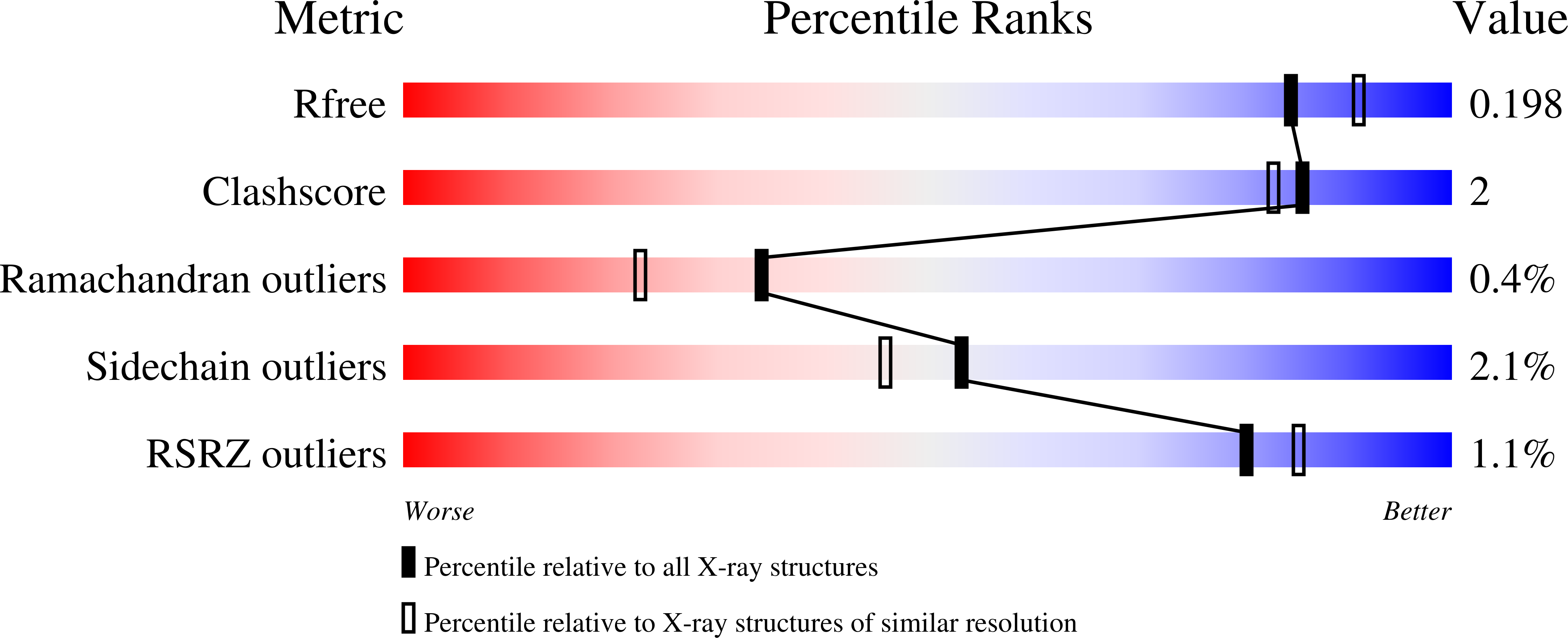Production of Glucocerebrosidase with Terminal Mannose Glycans for Enzyme Replacement Therapy of Gaucher'S Disease Using a Plant Cell System.
Shaaltiel, Y., Bartfeld, D., Hashmueli, S., Baum, G., Brill-Almon, E., Galili, G., Dym, O., Boldin-Adamsky, S.A., Silman, I., Sussman, J.L., Futerman, A.H., Aviezer, D.(2007) Plant Biotechnol J 5: 579
- PubMed: 17524049
- DOI: https://doi.org/10.1111/j.1467-7652.2007.00263.x
- Primary Citation of Related Structures:
2V3F - PubMed Abstract:
Gaucher's disease, a lysosomal storage disorder caused by mutations in the gene encoding glucocerebrosidase (GCD), is currently treated by enzyme replacement therapy using recombinant GCD (Cerezyme) expressed in Chinese hamster ovary (CHO) cells. As complex glycans in mammalian cells do not terminate in mannose residues, which are essential for the biological uptake of GCD via macrophage mannose receptors in human patients with Gaucher's disease, an in vitro glycan modification is required in order to expose the mannose residues on the glycans of Cerezyme. In this report, the production of a recombinant human GCD in a carrot cell suspension culture is described. The recombinant plant-derived GCD (prGCD) is targeted to the storage vacuoles, using a plant-specific C-terminal sorting signal. Notably, the recombinant human GCD expressed in the carrot cells naturally contains terminal mannose residues on its complex glycans, apparently as a result of the activity of a special vacuolar enzyme that modifies complex glycans. Hence, the plant-produced recombinant human GCD does not require exposure of mannose residues in vitro, which is a requirement for the production of Cerezyme. prGCD also displays a level of biological activity similar to that of Cerezyme produced in CHO cells, as well as a highly homologous high-resolution three-dimensional structure, determined by X-ray crystallography. A single-dose toxicity study with prGCD in mice demonstrated the absence of treatment-related adverse reactions or clinical findings, indicating the potential safety of prGCD. prGCD is currently undergoing clinical studies, and may offer a new and alternative therapeutic option for Gaucher's disease.
Organizational Affiliation:
Protalix Biotherapeutics, 2 Snunit Street, Science Park, Carmiel 20100, Israel.


















